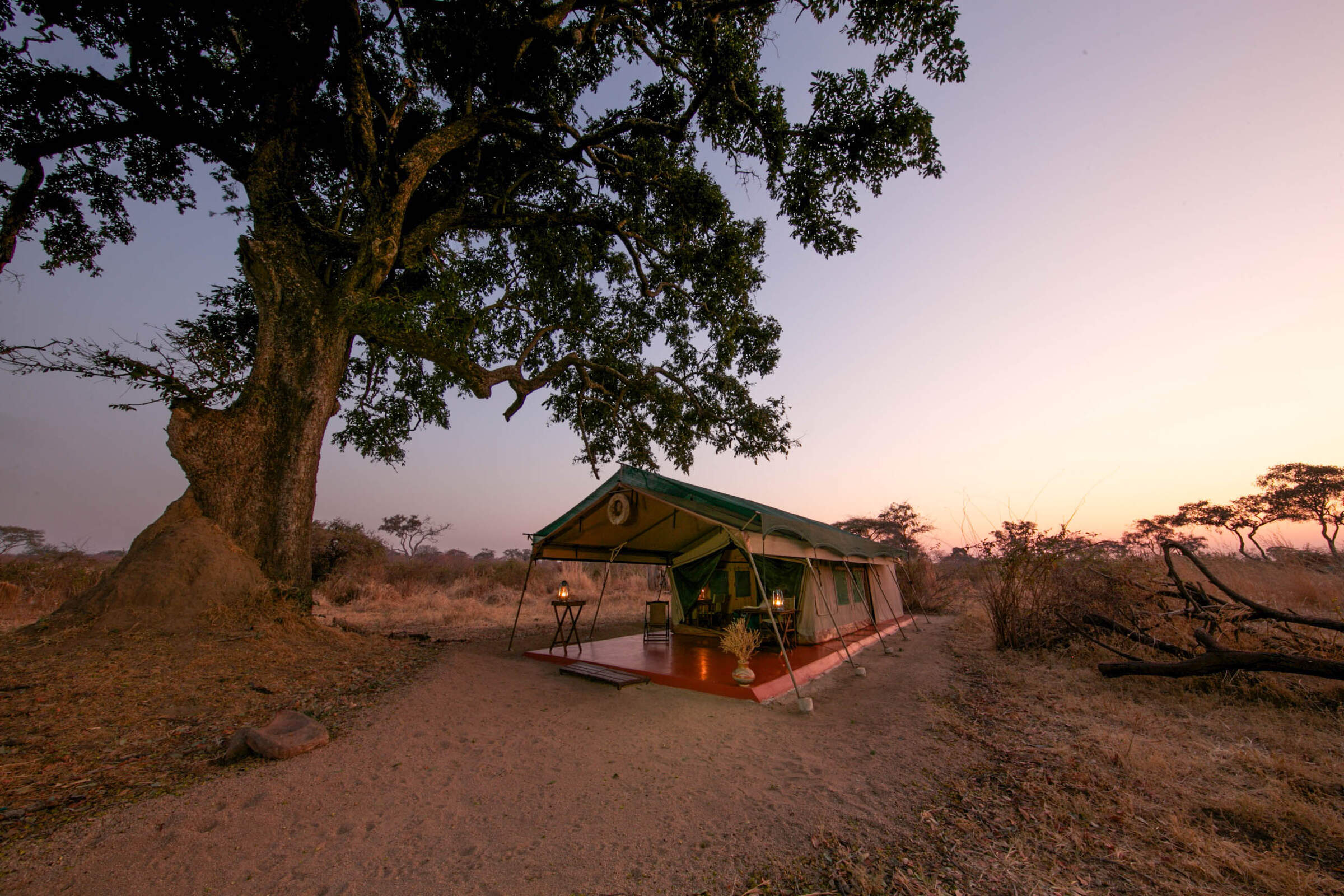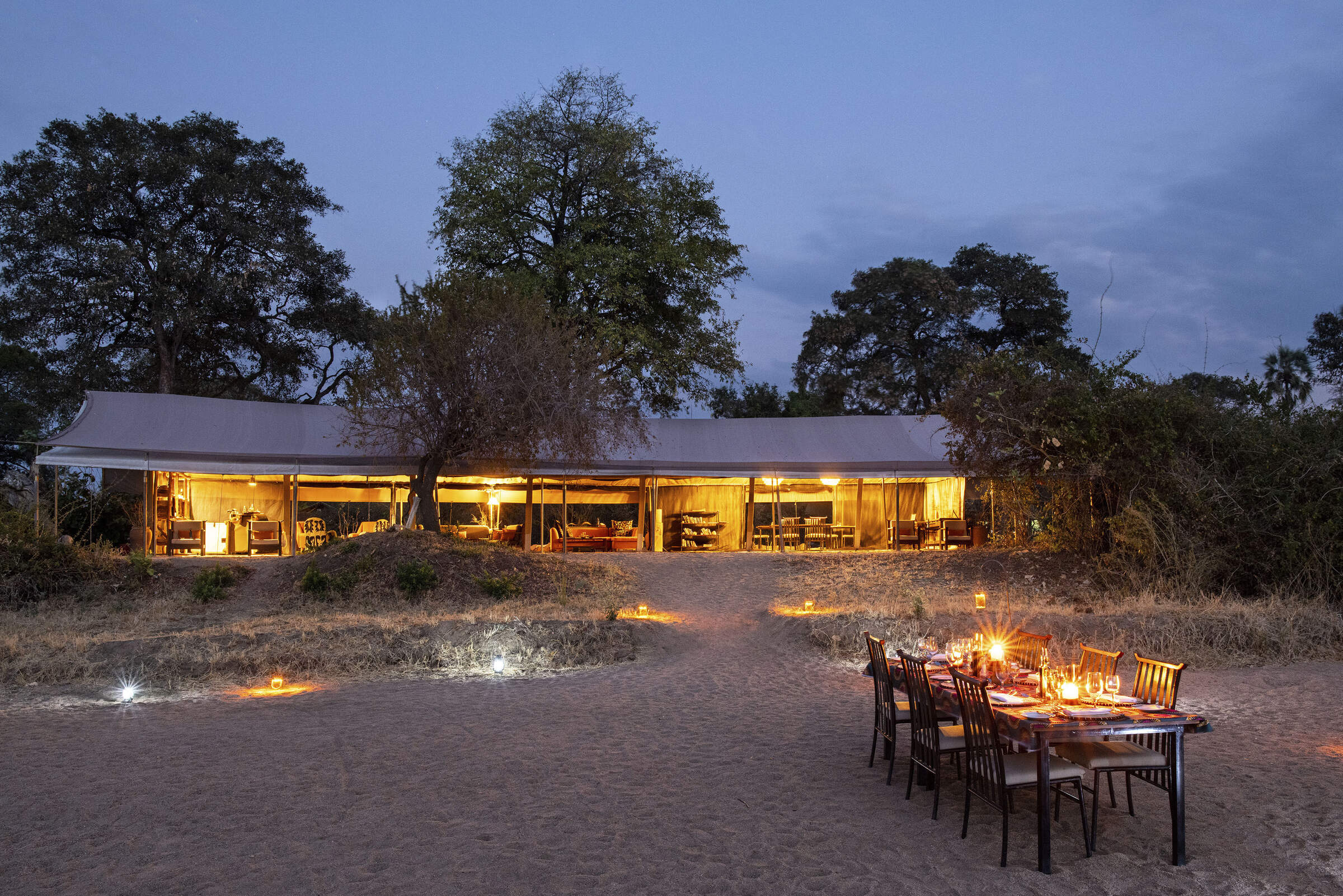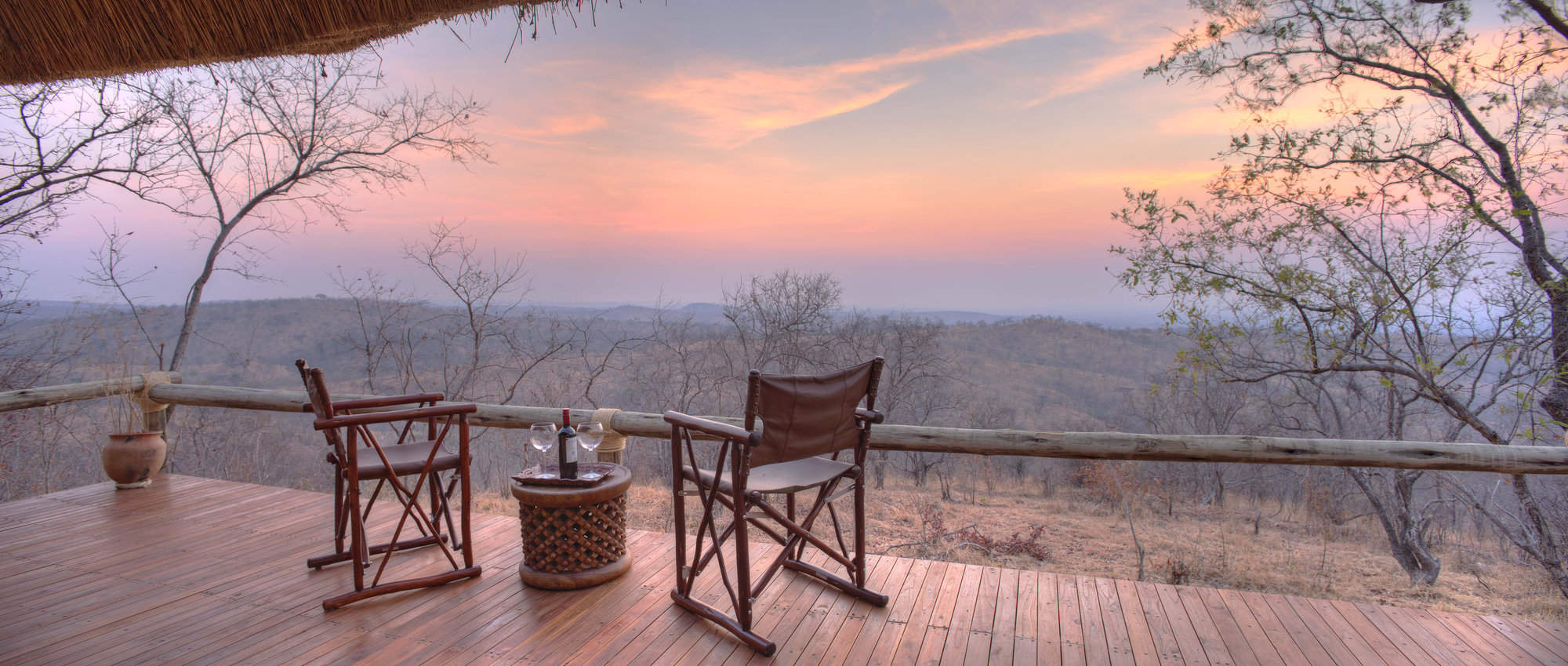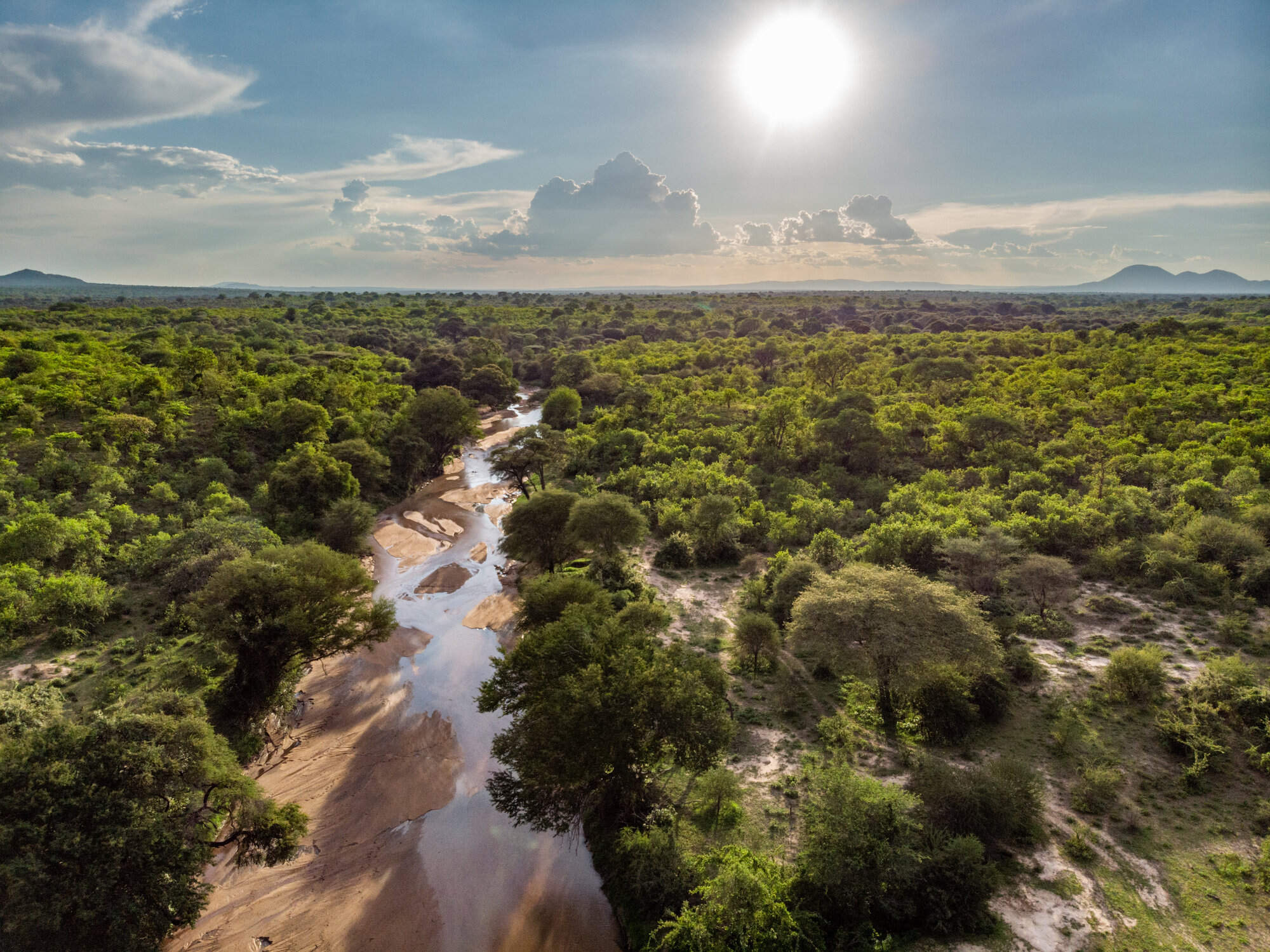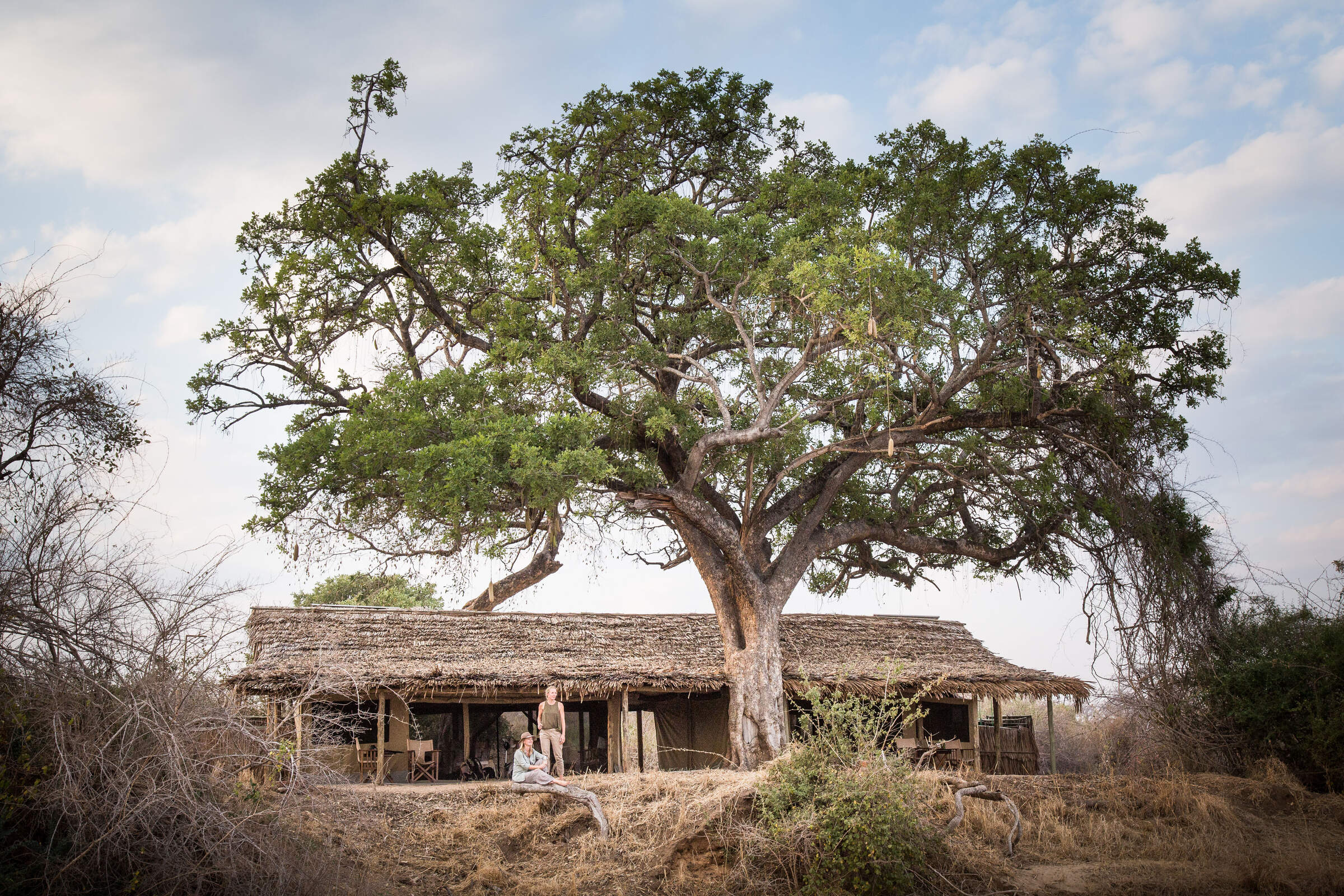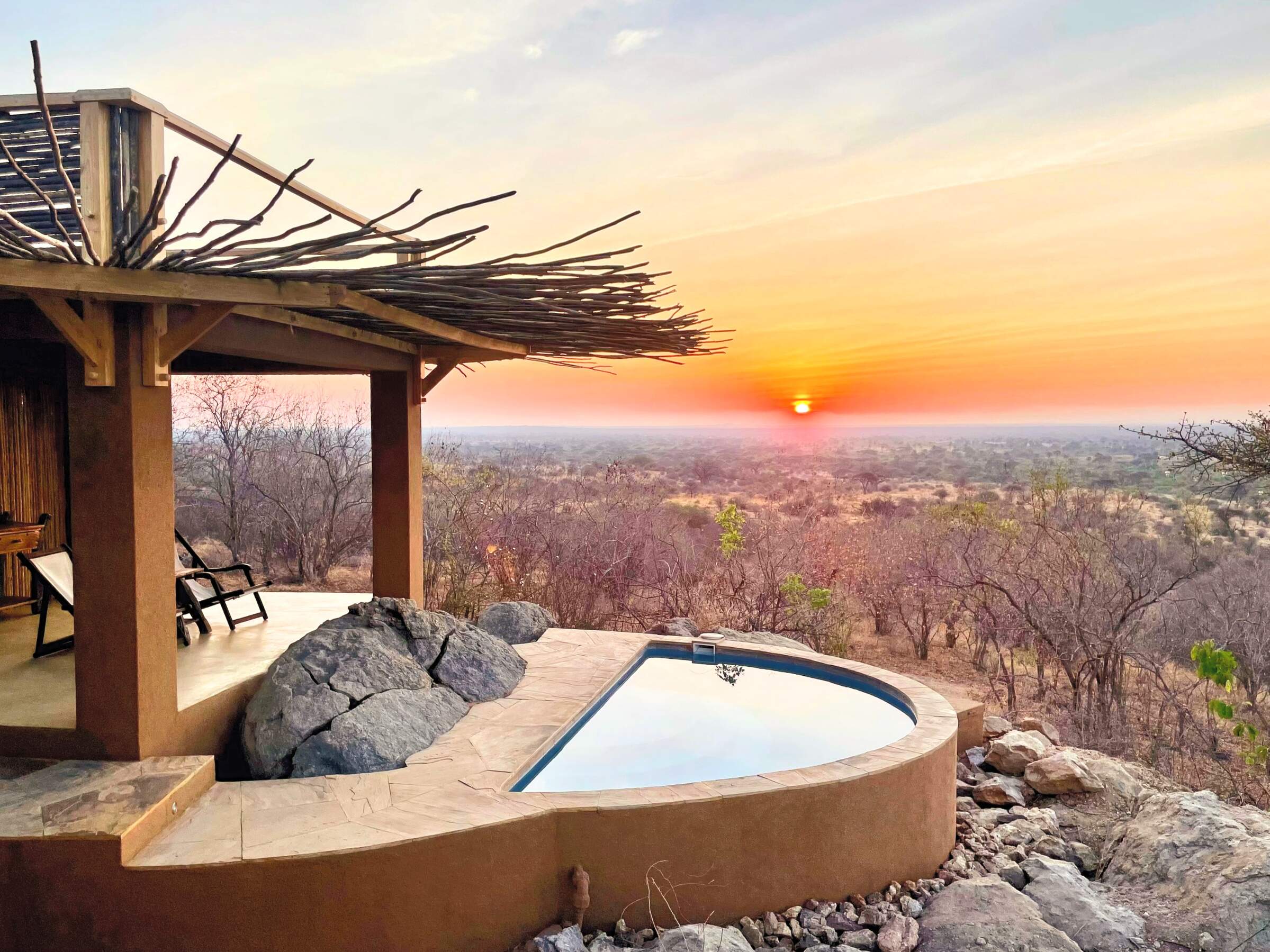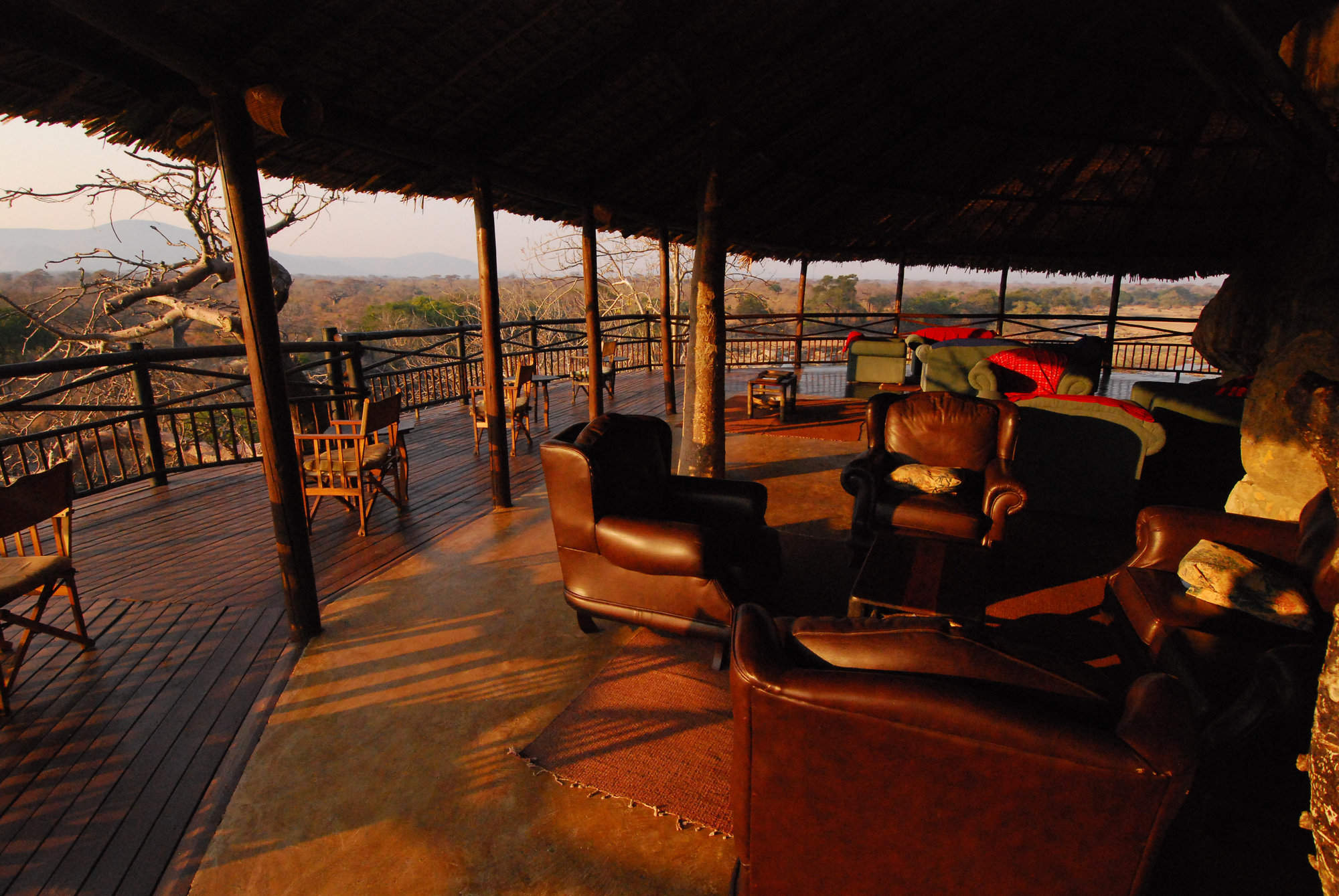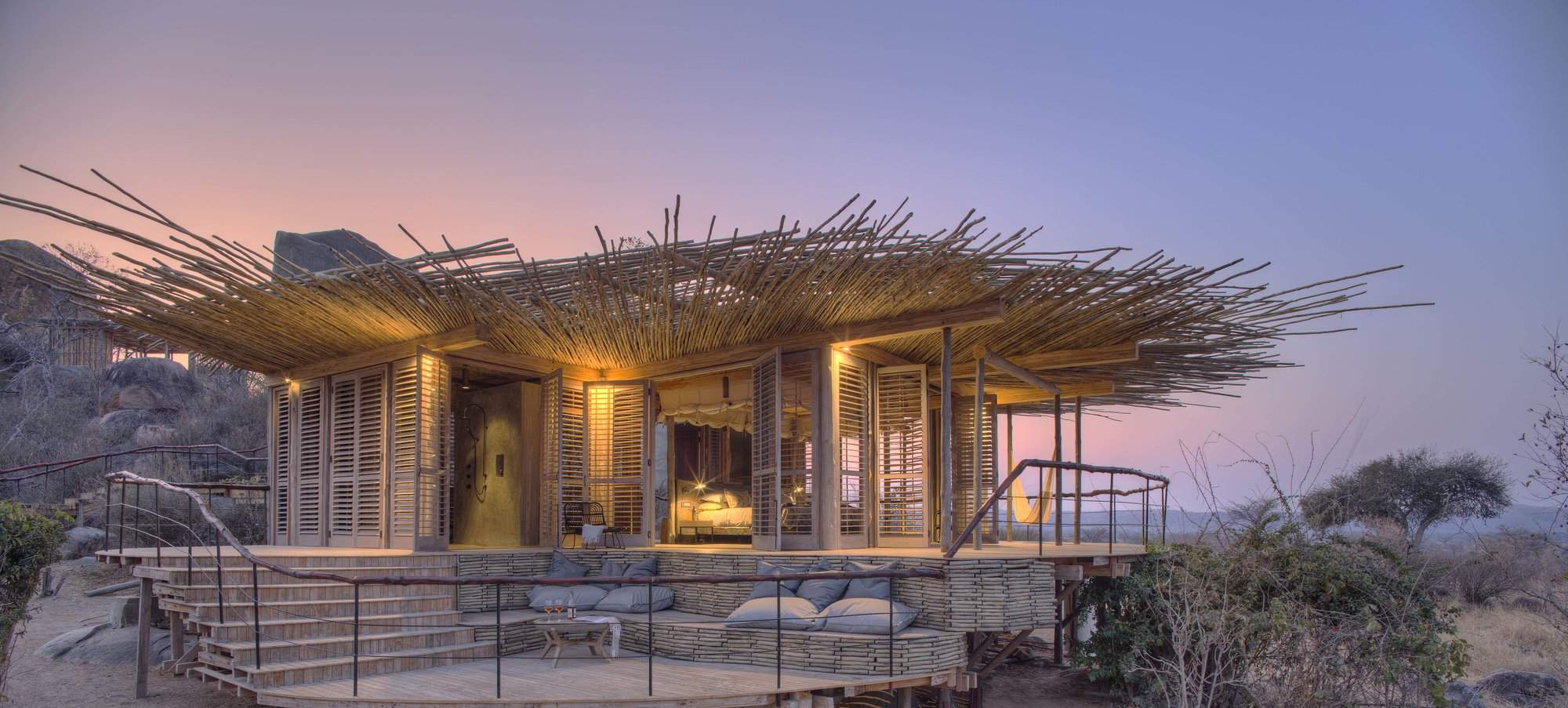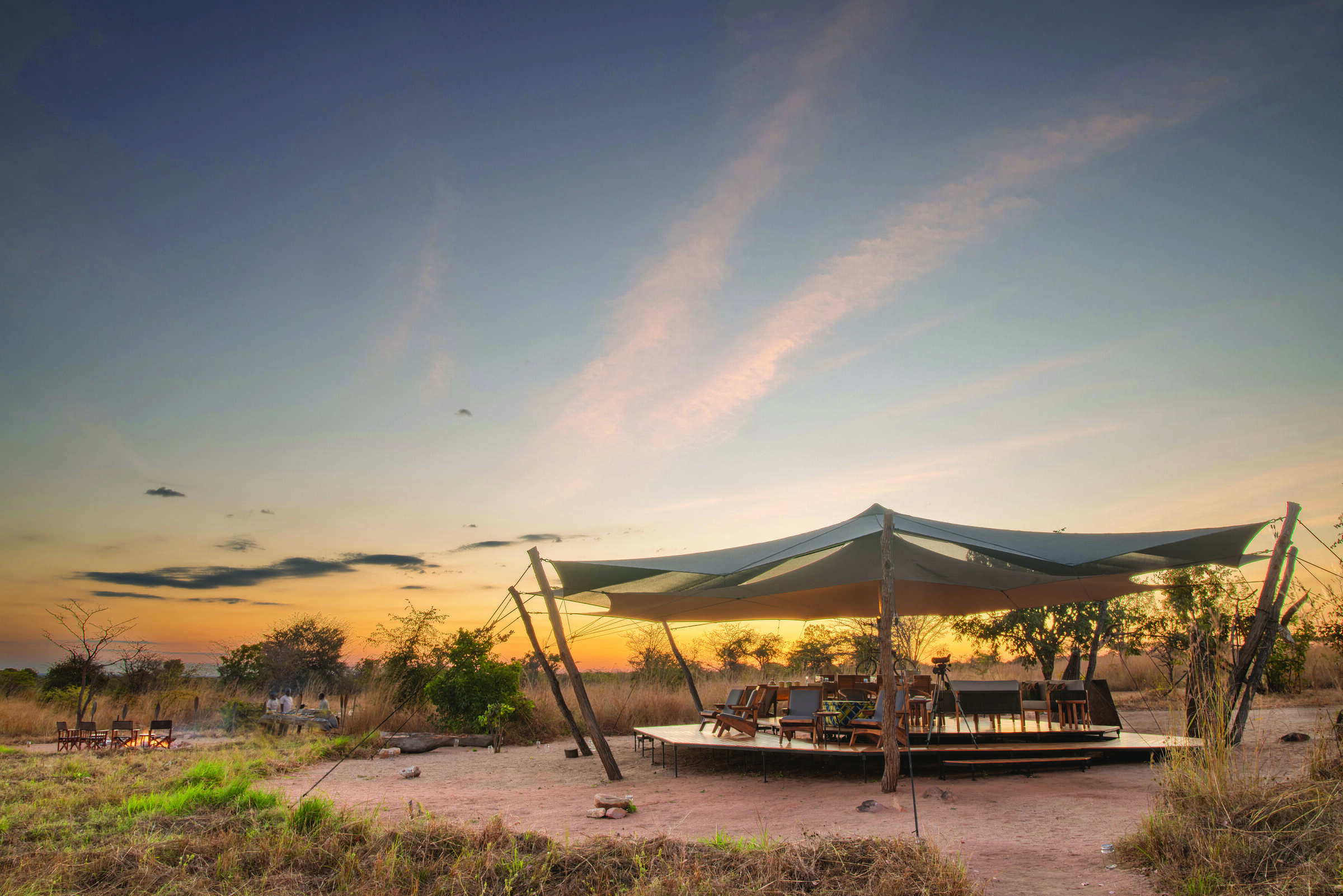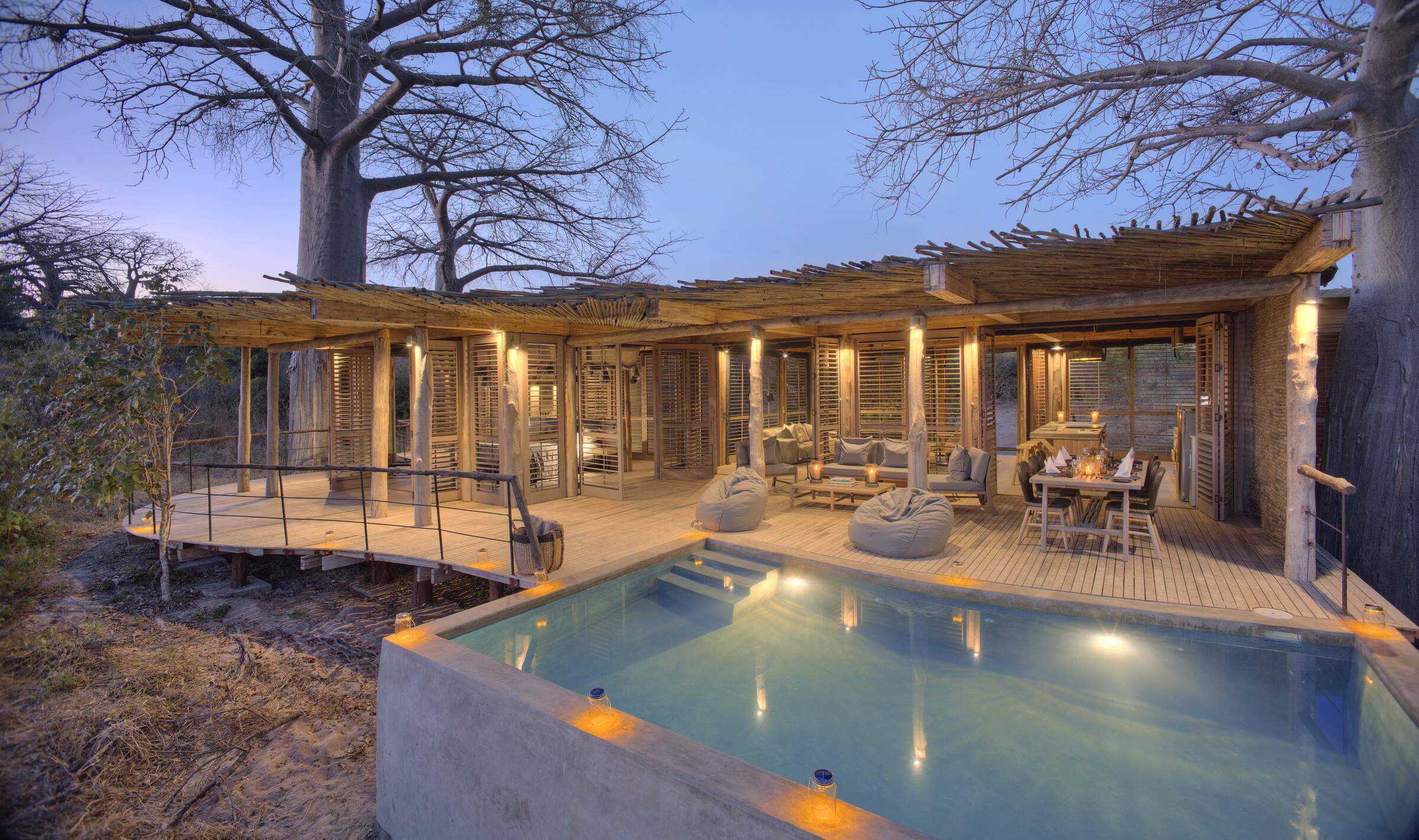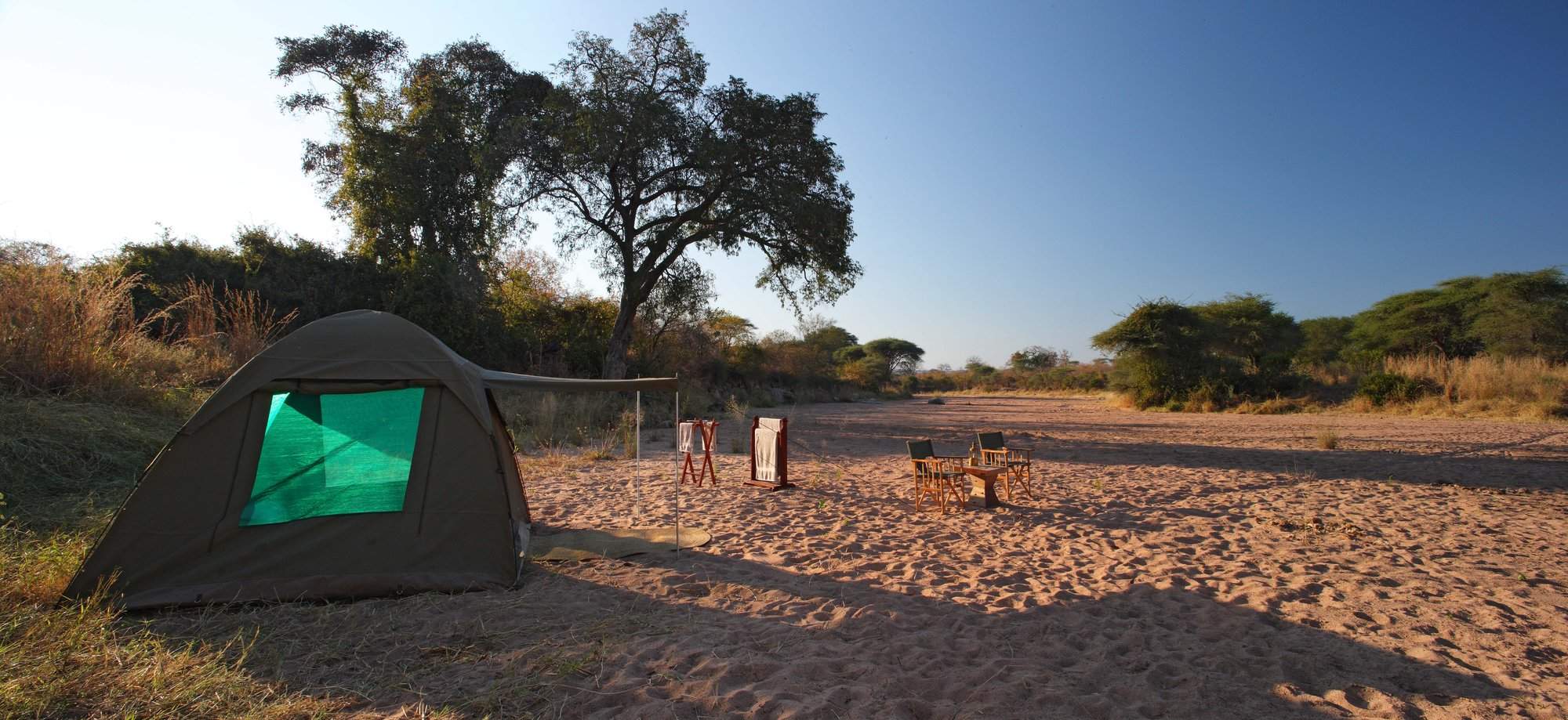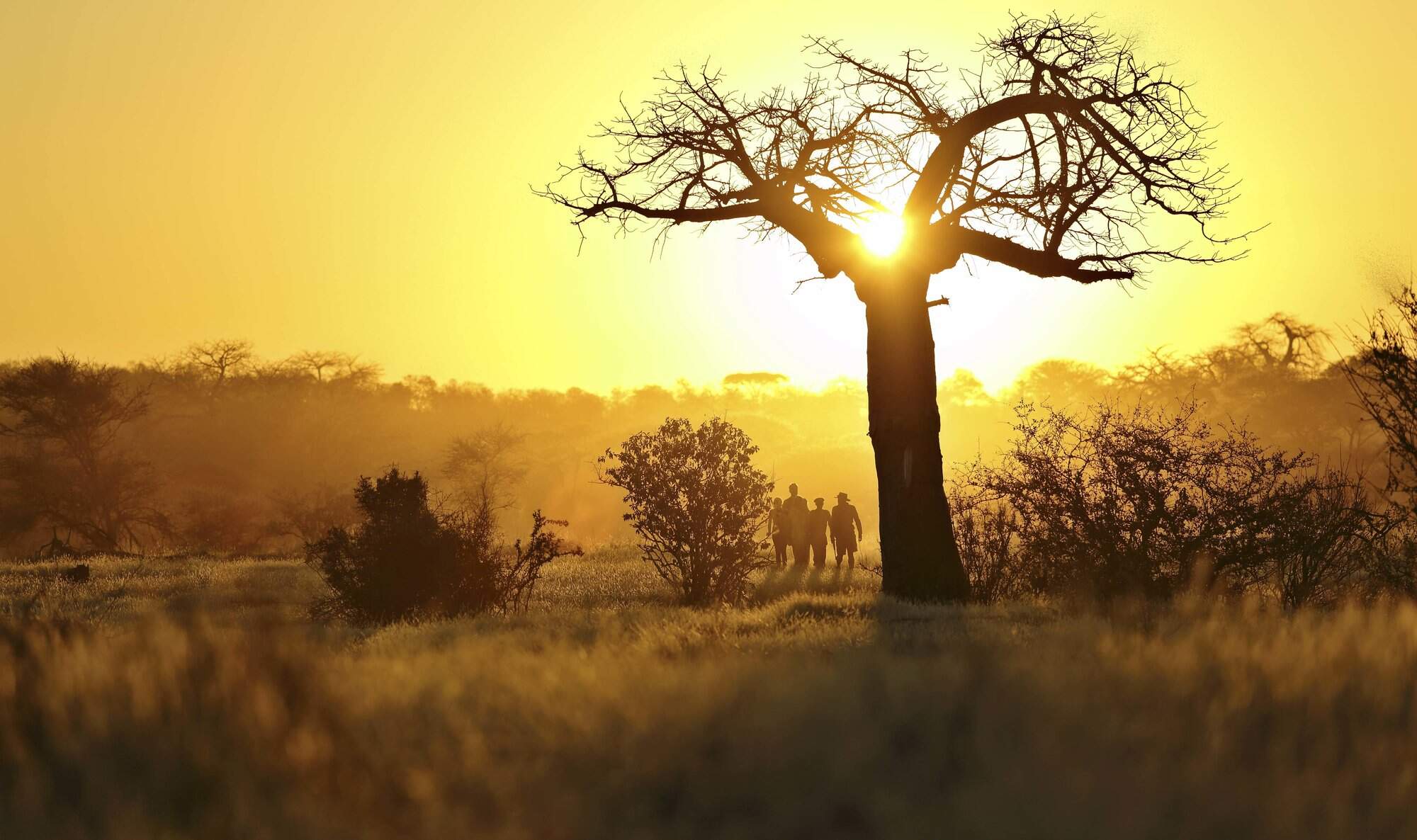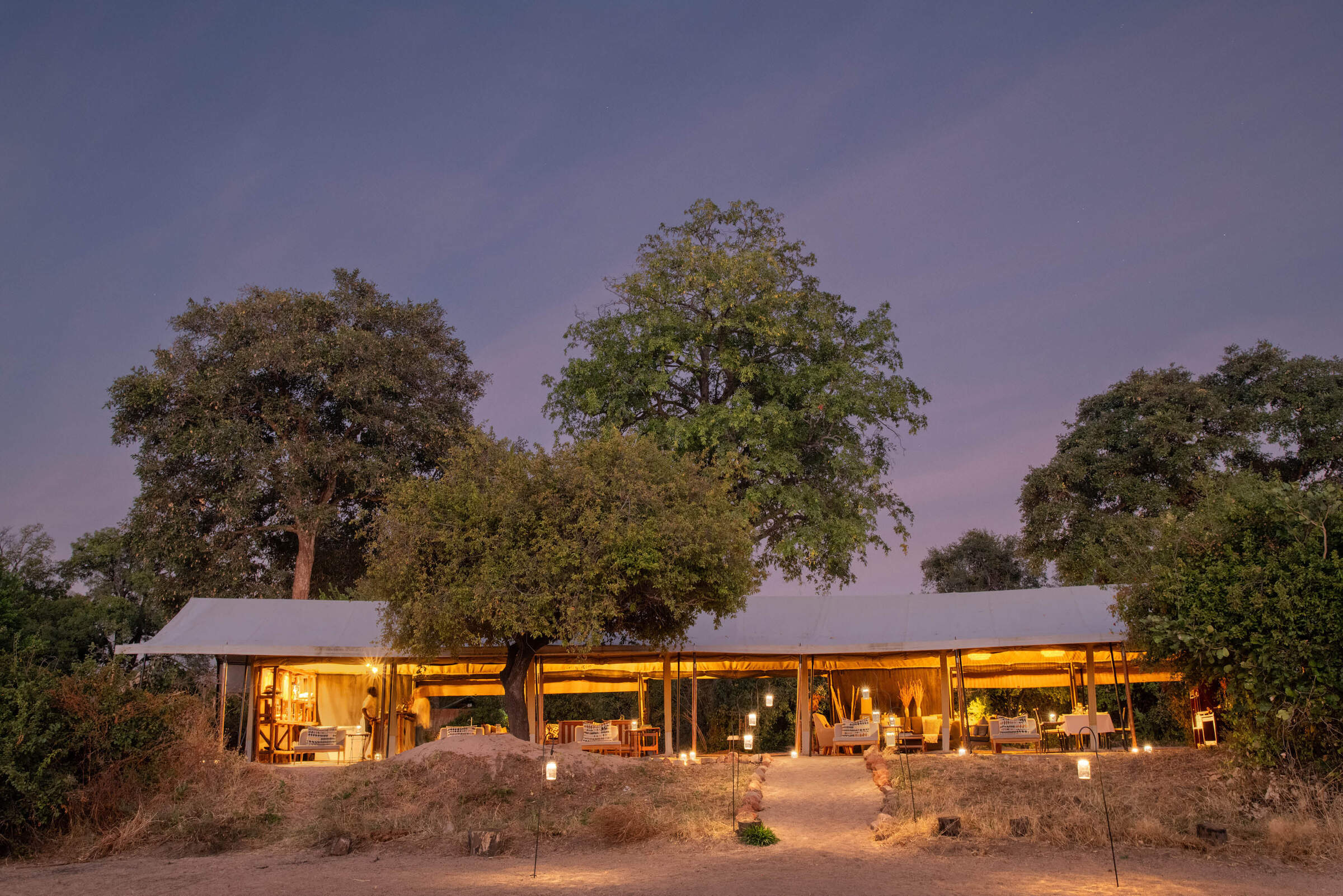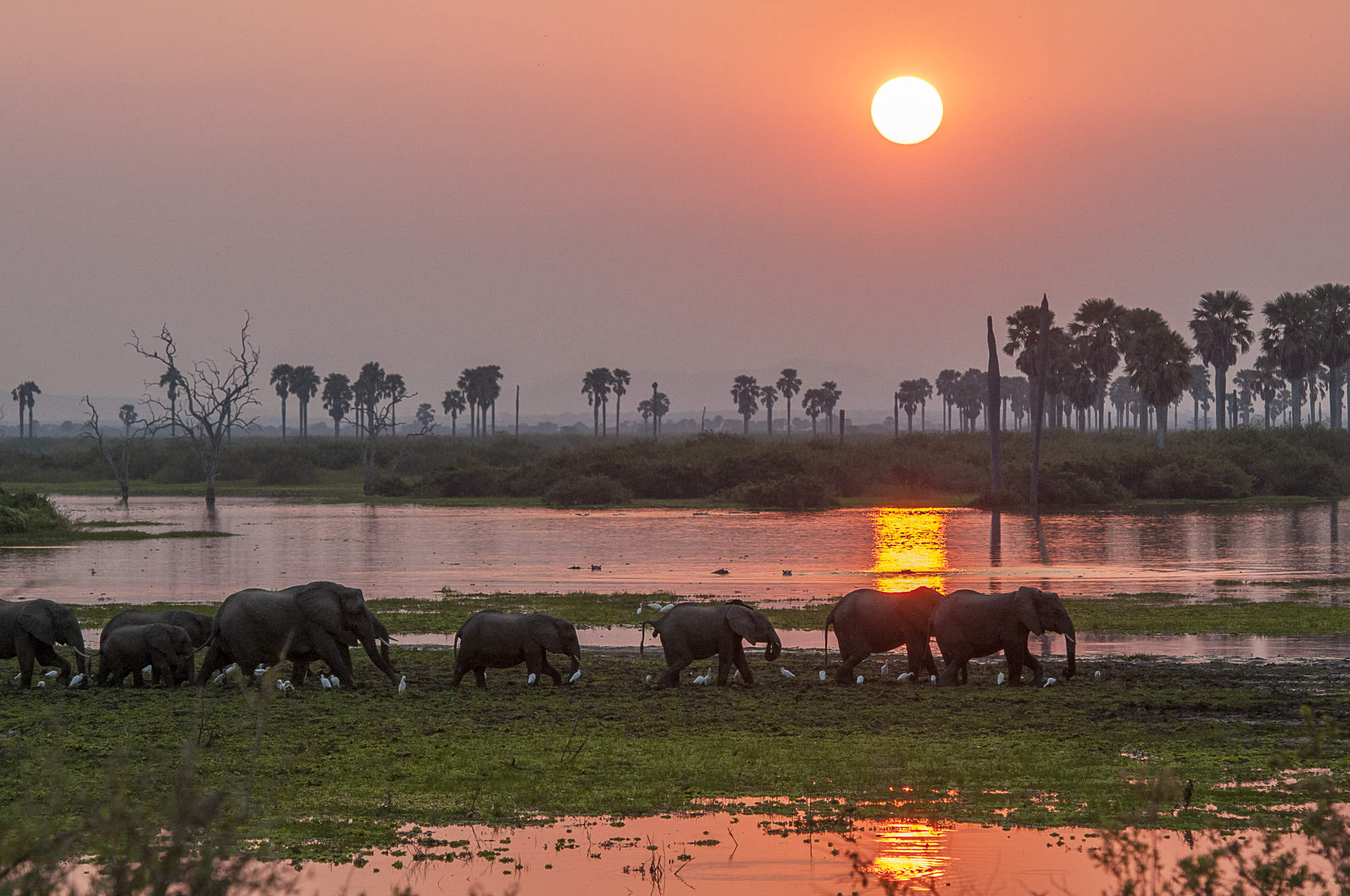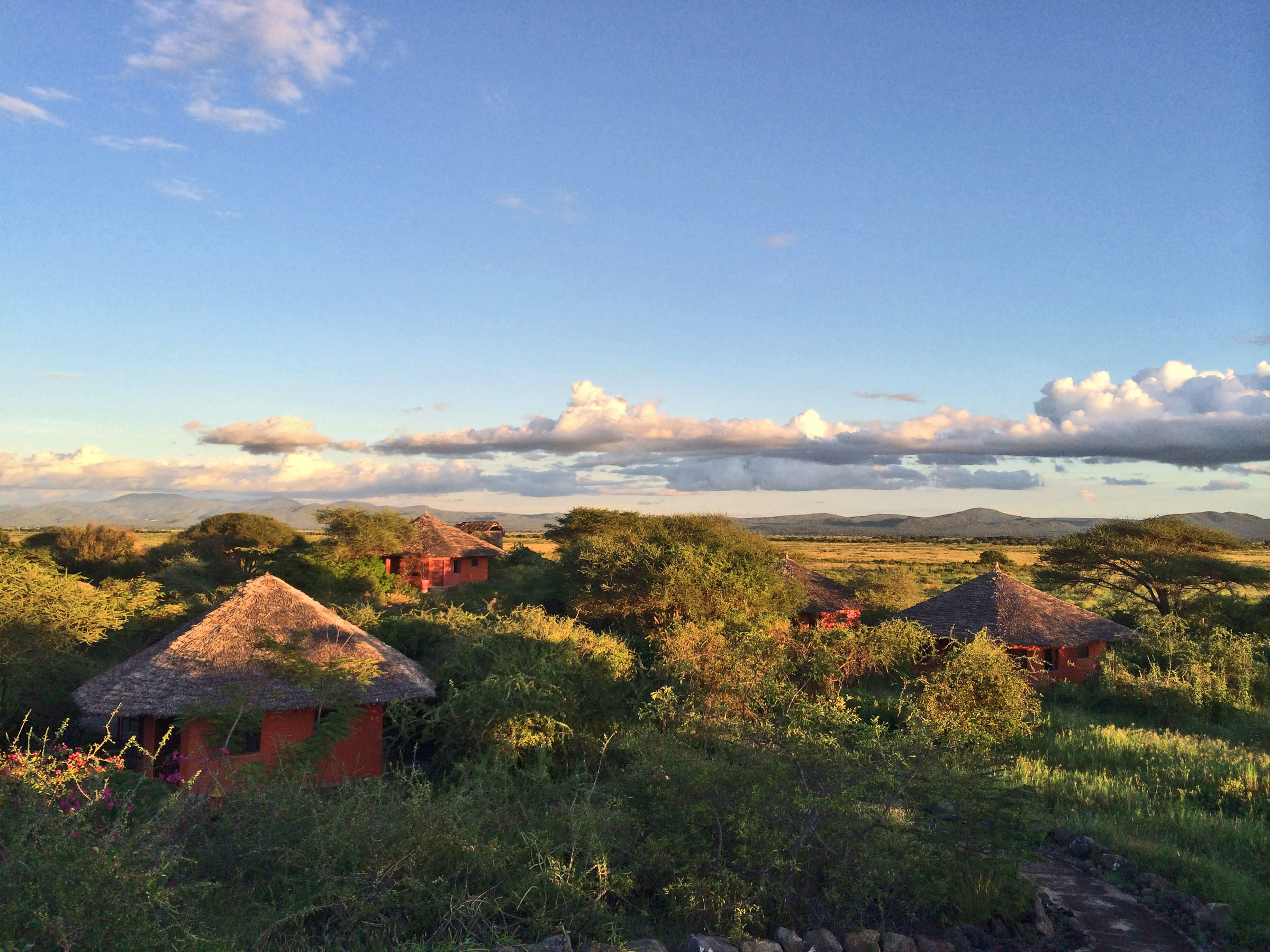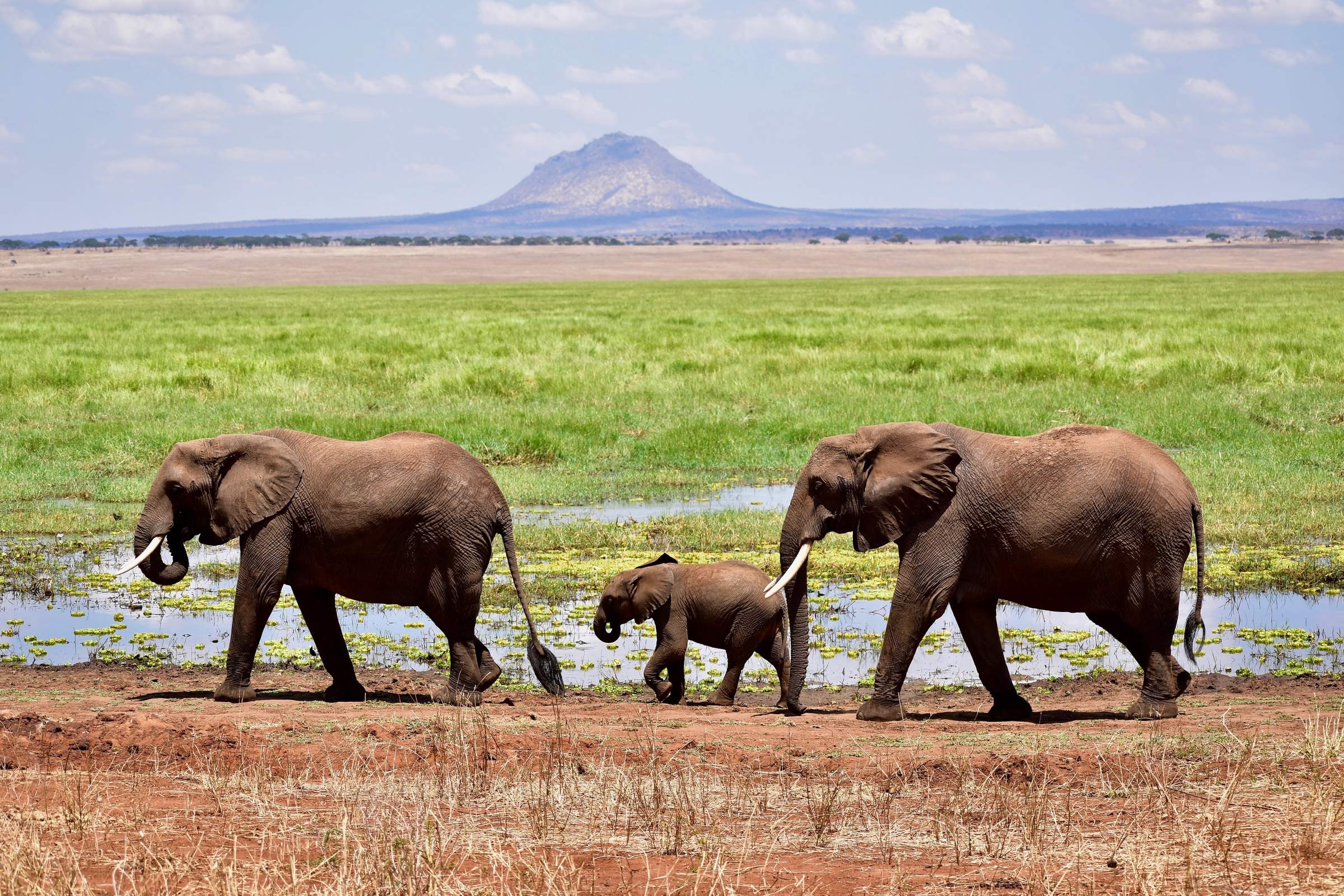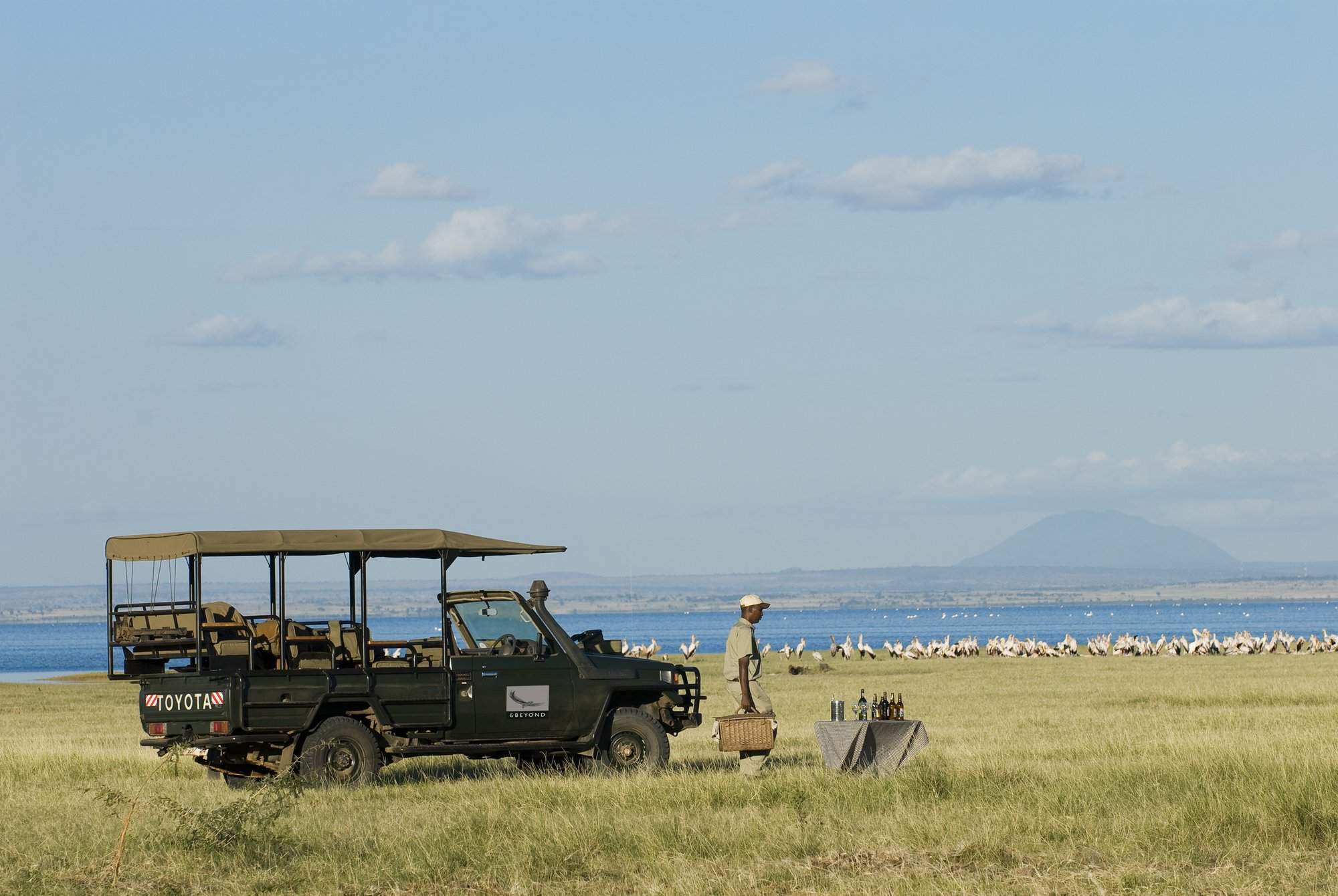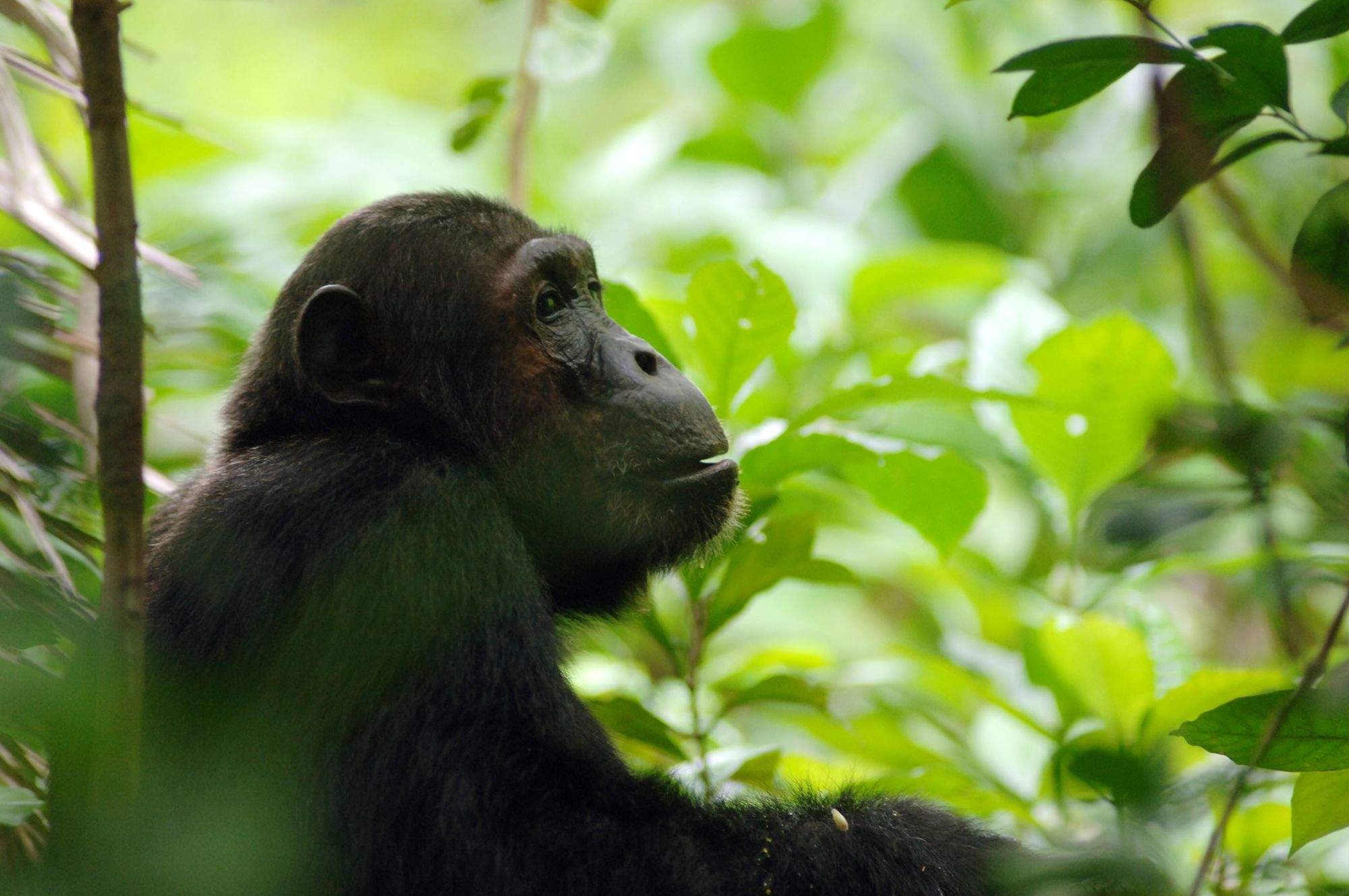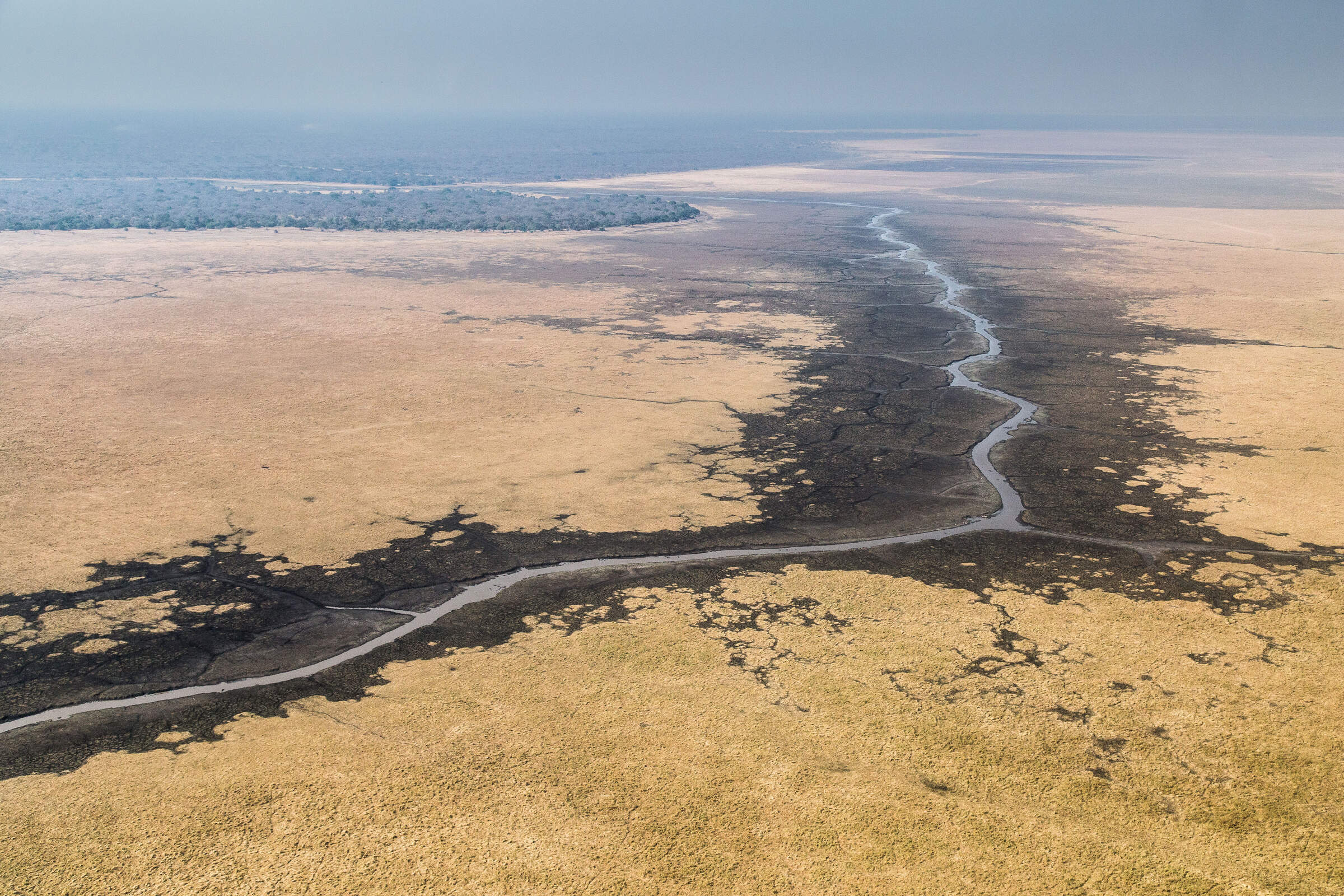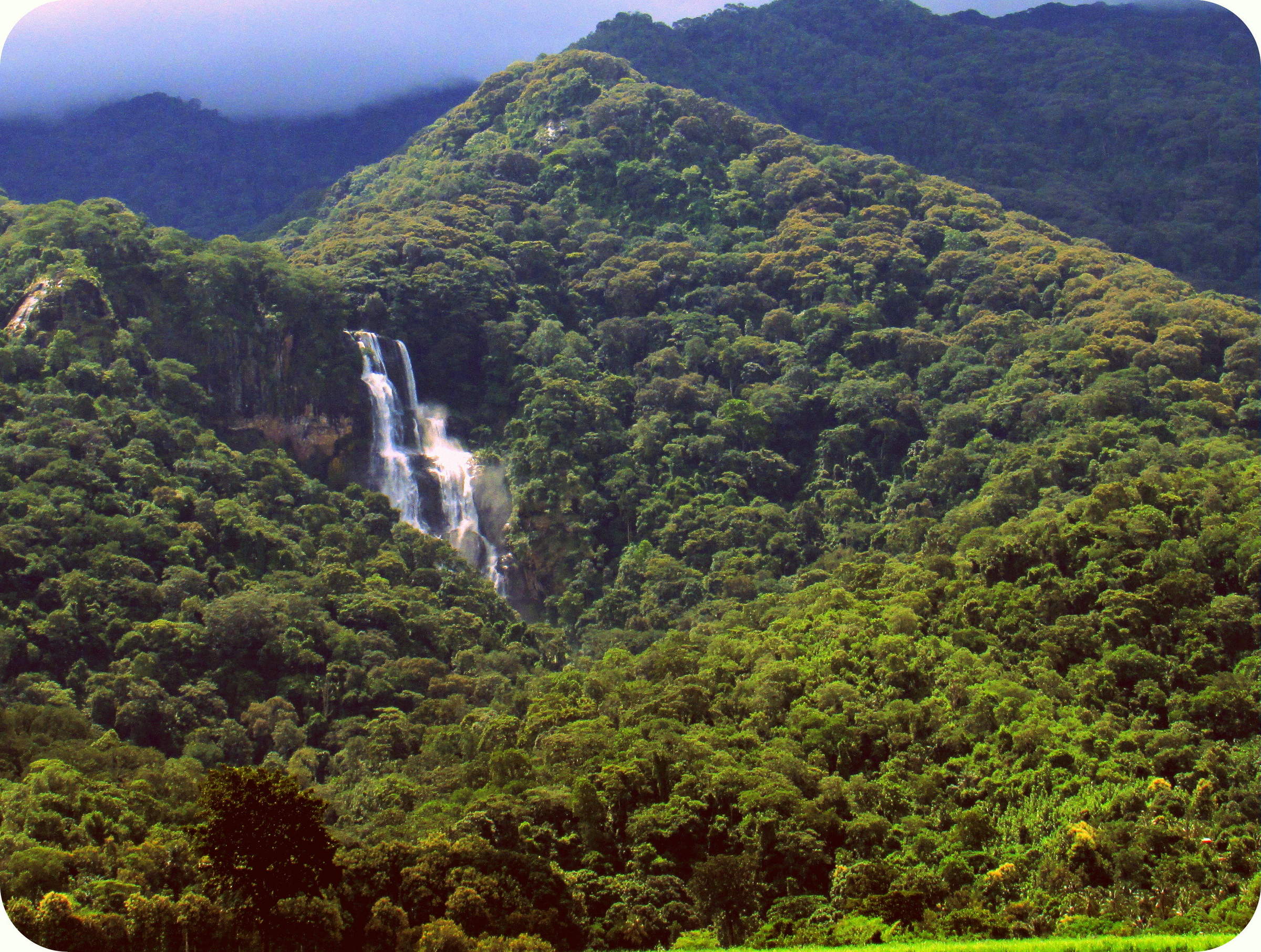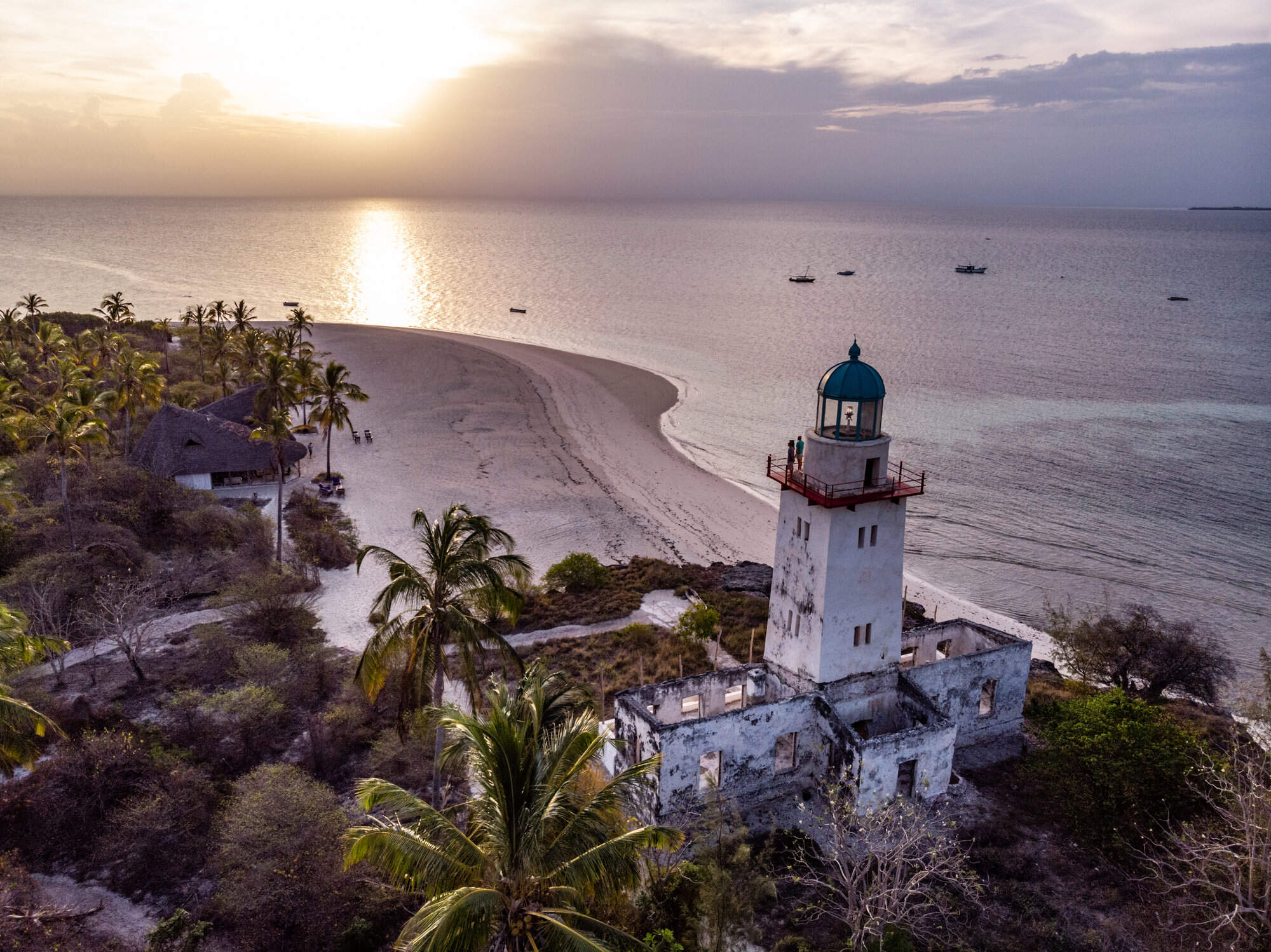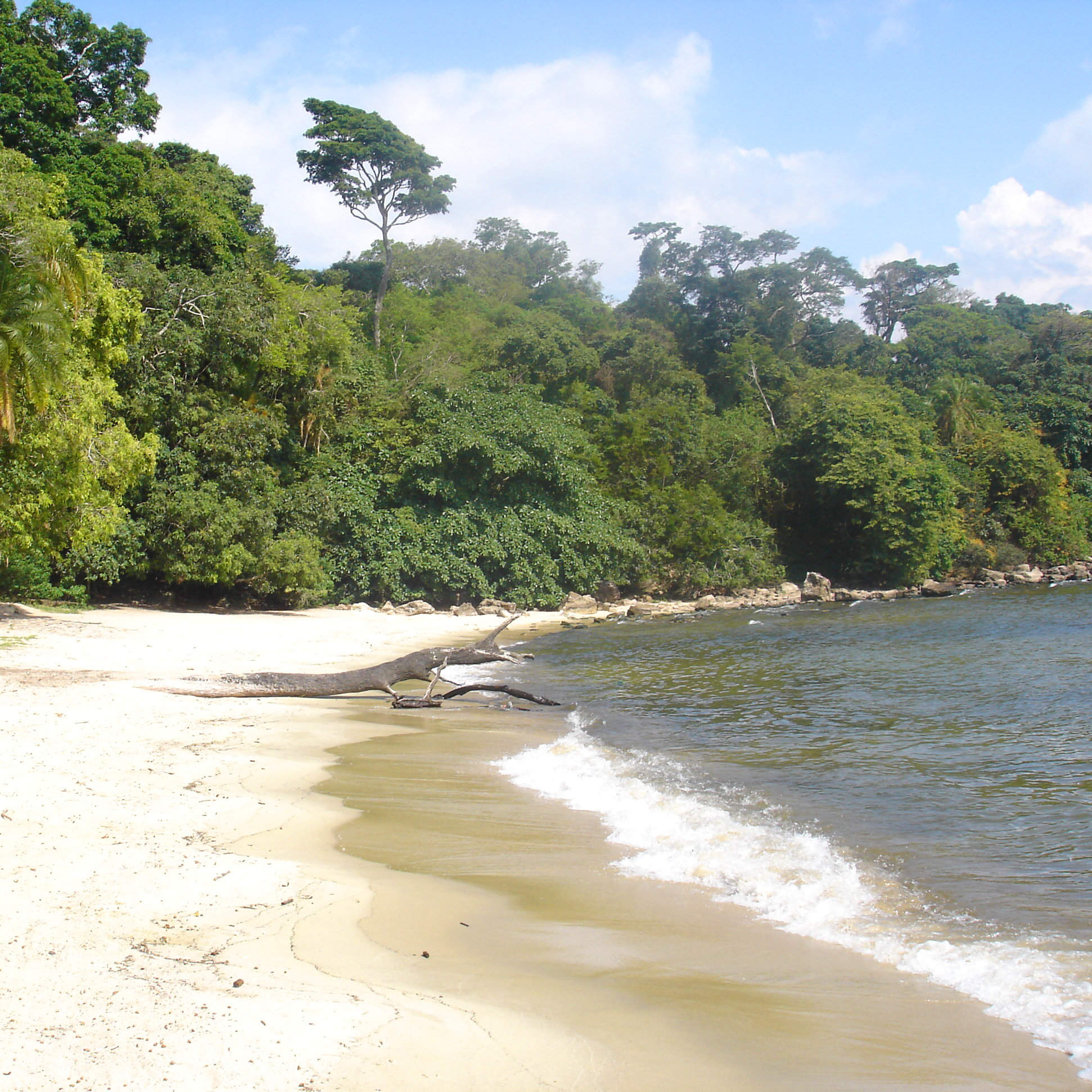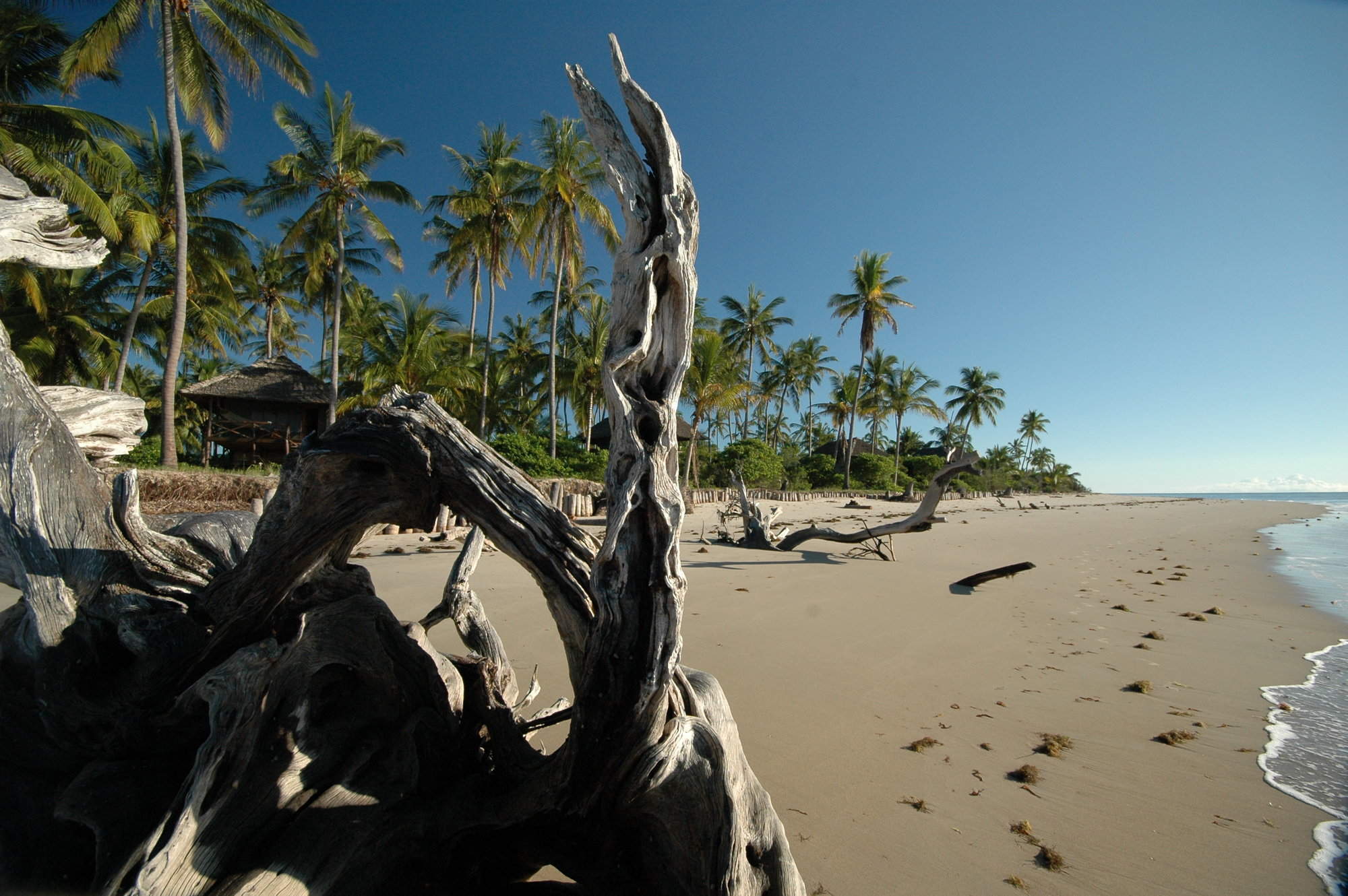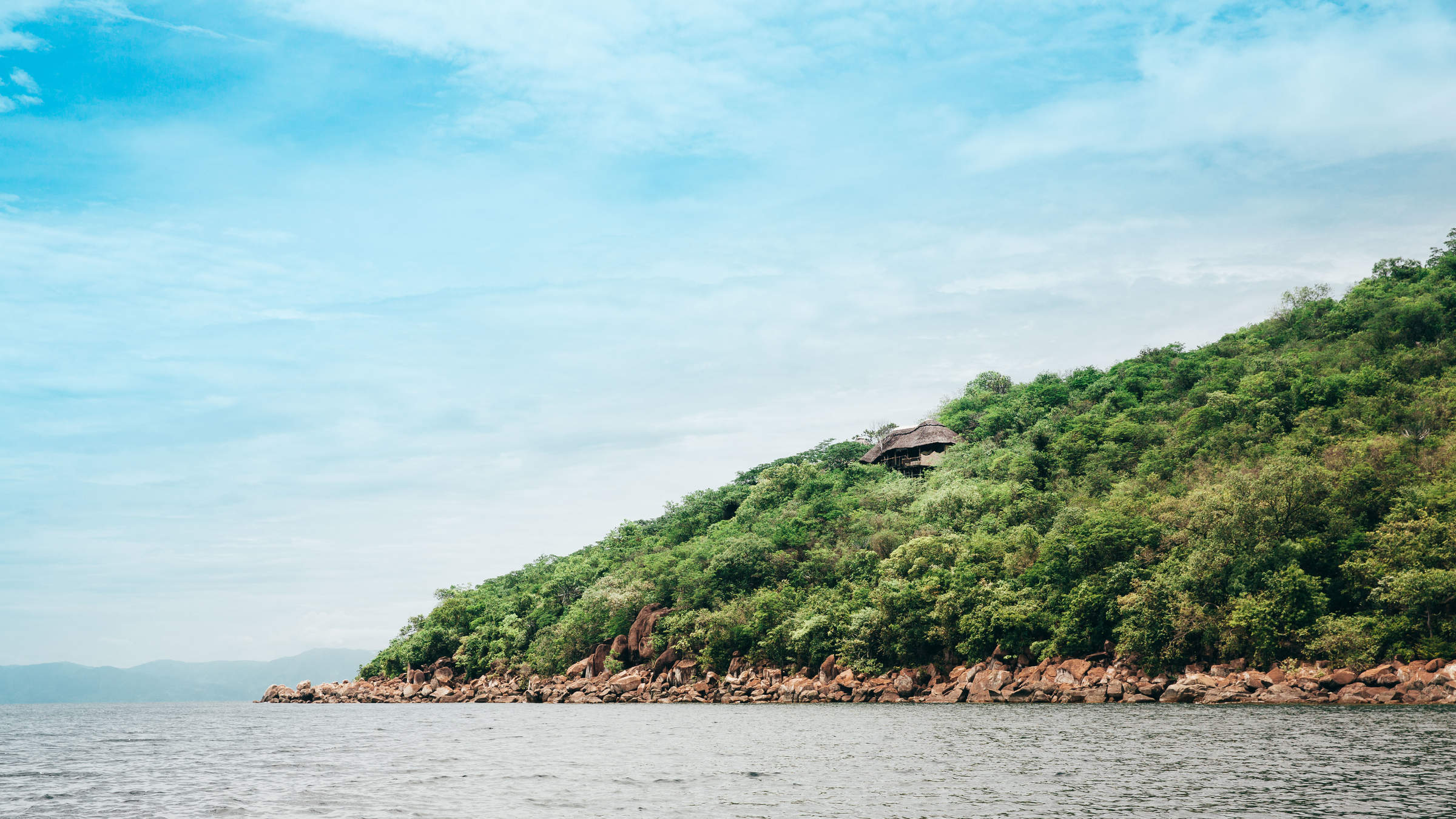Mwagusi Safari Camp: Our full report
Set on the banks of Tanzania’s seasonal Mwagusi River, Mwagusi Camp is relatively smart and comfortable, ...
... yet rustic in feel. It has been operating in Ruaha National Park since the 1980s. As a result, the game, which is drawn to the river and surrounding area, is well-habituated.The camp's owner and occasional host is the charismatic Chris Fox, who was born in Tanzania and is passionate about Africa, the park and its wildlife, and is strongly committed to running a sustainable operation.
Mwagusi’s rooms and central area all look out over the river. Although it is mostly dry from July through to November, natural pools and holes dug by elephants to reach the water table attract game throughout the year.
The 13 rooms, known as bandas, are spacious tented rooms under a larger reed-and-thatch roof. This extends at the front to incorporate an open-sided veranda, unique in design, depending on each room’s location. The verandas share several features: all look out over the river and offer a small lounge area with sofas cleverly built around the granite boulders that are scattered along the river bank. Some also have a hammock.
Inside the tents are large, comfortable beds, a writing desk and a bedside light. Bright throws and makuti mats on the floors bring colour and character. None of the features match perfectly or blend into a seamless uniform style – but this adds to the under-designed charm of Mwagusi. There is electricity for lighting, but no fans or air-conditioning, though the thatched roof and flow-through of air helps keep them fairly cool. There are three pin UK style plug sockets in the tents where electricals can be charged.
Between each room and its spacious en-suite bathroom is a large vestibule area, with space for hanging and folding clothes. The bathroom extends beyond, built on to the back of each room. These are thoughtfully put together, quite unlike any others we know of in Africa, with some adorned with animal bones, which are maybe not to everyone's taste. The walls are made of rustic stone, cut to about waist height and topped with thick reeds. Lovely touches include towel rails made of reclaimed driftwood, cleverly built into the stone walls. There is a slight dividing wall between the flush toilet and the hot shower.
Sandy paths lead from the well-spaced rooms to the main dining and lounge area, which matches the style of the rooms with high thatched roofs, waist-high reed walls, polished red stone floors and bits of driftwood built into the walls. Animal skulls and other items collected from the bush are dotted around, adding a rustic feel.
Adjacent to the lounge is a further area for relaxing and a small library, with a table and chairs, wildlife books, and comfortable, built-in sofas covered in brightly coloured fabrics.
Activities at Mwagusi focus mainly on game drives, heading out early in the morning, typically pausing for breakfast out in the bush, and then again in the late afternoon once the heat of the day has passed. There is the possibility to request an all-day trip that allows you to explore deep into the park. However, do bear in mind that most wildlife is inactive around midday, and we would only suggest this activity during the cooler winter months of July and August.
If you want to experience the bush on foot, short informal nature walks around the outskirts of the camp are run in the early morning, and can often tally up a good number of different species. More serious three-to-four-hour walks through the bush or along the river, accompanied by a camp guide and park rangers, are possible and provide a chance of encountering large wildlife on foot. These longer walks must be arranged in advance, and are an extra cost, payable in camp.
Unlike some other countries, there are no official guiding exams or qualifications in Tanzania. To offer a consistent quality guiding in the camp, and as part of a wider sustainability commitment in the area, Chris Fox operates a school to provide training for all staff (not just the guides) in natural history, guiding, waiting, plumbing, electrics and mechanics. If you visit Mwagusi two years apart, there’s a good chance that your waiter from your first trip will be your guide on the second!
Our view
We can see why Mwagusi continues to be popular. As a quirky, owner-run camp it feels both homely and welcoming, and it’s certainly the antithesis of a lodge designed by committee. Mwagusi’s service is good and the guiding very competent, resulting in a fantastic game viewing experience. While it’s not the cheapest camp in the park, we think it’s well worth it.
Geographics
- Location
- Ruaha National Park, Tanzania
- Ideal length of stay
- We recommend spending at least three to four nights at Mwagusi to explore Ruaha National Park.
- Directions
- Ruaha is a two-and-a-half-hour flight from Dar es Salaam, then a further 30 minute drive to the camp.
- Accessible by
- Fly-and-Transfer
Food & drink
- Usual board basis
- Full Board & Activities
- Food quality
- Mwagusi's two head chefs, Meru and Mohammed, have both been working in the kitchens and producing tasty food for a number of years.
Breakfast times are flexible, although the usual routine is to have a couple of small biscuits delivered to your room with your wake-up tea or coffee, and a larger breakfast out in the bush on your morning activity. This can include fresh fruit, eggs, cereal and Mwagusi’s homemade cinnamon rolls. If you are on a later game drive, or connecting onto a flight, breakfast is usually served in camp.
Lunch is set out buffet-style, with a good variety of light salads and more filling options. It is served in the camp at around 12.15-1.00pm, when guests return from their morning activities. On our last visit in July 2017, we had a selection of rice, ginger beef, vegetable pasties, coleslaw, green beans and a green salad.
A slightly more formal dinner, following pre-dinner drinks around the campfire, is often served outside and sometimes in the riverbed. Everyone sits around one large table, with the meal either served to you or presented as a buffet, depending on the location. Private dining can also be arranged on request.
On our last visit, we enjoyed stuffed tomatoes, followed by a main buffet of stuffed pork, mashed potatoes, Moroccan chickpea stew, braised carrots and broccoli. Dessert was a chocolate and banana roulade. The food at Mwagusi was tasty, imaginative and consistently very good, and the team have no problem catering for special dietary requirements. - Dining style
- Group Meals
- Dining locations
- Indoor and Outdoor Dining
- Further dining info, including room service
- No
- Drinks included
- Apart from complimentary filtered water in the rooms and soda on game drives, no drinks are included.
Beers costs around US$4 and soft drinks around US$2. The camp also has an impressive wine list, given its location, with a glass costing around US$5 and bottles ranging up to US$30.
Special interests
- Family holidays
- Overlooking a seasonal river in Ruaha, Mwagusi is a quirky, owner-run camp. Come for 4WD drives and brilliant service on your family safari holidays in Tanzania! We recommend it for families with mature children aged 10+.
- See ideas for Family holidays in Tanzania
- Solo Travel
- Ruaha's owner-run Mwagusi Safari Camp is a great choice for solo travellers visiting Tanzania. Plenty of water and open plains mean top wildlife safaris, whilst shared activities, communal meals and a sociable lounge and dining area make it great for single travellers.
- See ideas for Solo Travel in Tanzania
- Birdwatching
- Ruaha's position at the centre of Tanzania gives it an interesting cross section of birds – and makes it a fascinating park for birdwatching in Tanzania. Early-morning bird-walks are a very popular activity at the camp to catch the dawn chorus with a guide before breakfast.
- See ideas for Birdwatching in Tanzania
- Walking safaris
- Highly trained guides from Mwagusi Safari Camp will take you to discover the lesser-known flora and fauna of the bush; learn how to recognise different droppings, how to identify bird calls and the many medicinal uses of plants.
- See ideas for Walking safaris in Tanzania
- Wildlife safaris
- Ruaha has all the usual big game – and the team at Mwagusi take a very enthusiastic approach to finding it for you. There's a tremendous depth of experience at this small, owner-run camp, making it a great choice for wildlife safaris in Tanzania if you're passionate about game-viewing!
- See ideas for Wildlife safaris in Tanzania
Children
- Attitude towards children
- Mwagusi welcomes children of all ages.
- Property’s age restrictions
- There are no age restrictions to stay at Mwagusi, but no children under 16 are allowed on guided walks.
- Special activities & services
- No special equipment or services offered.
- Generally recommended for children
- Expert Africa does not recommend Mwagusi for under 10s.
- Notes
- Although Mwagusi welcomes children of all ages, we would recommend the camp only for well-behaved, mature children aged over 10. Because of the dangerous game (on our last visit elephants often wandered through the camp), children need constant supervision by their parents.
Our travellers’ wildlife sightings from Mwagusi Safari Camp
Since mid-2018, many of our travellers who stayed at Mwagusi Safari Camp have kindly recorded their wildlife sightings and shared them with us. The results are below. Click an animal to see more, and here to see more on our methodology.

100% success

100% success

100% success

91% success

91% success

90% success

90% success

73% success

70% success

33% success

25% success

20% success

0% success

0% success

0% success

0% success
Communications
- Power supply notes
- Mwagusi has a back-up generator. There are no sockets in the rooms, so camera batteries and the like are charged in the office (cameras and phones take precedence over iPad and computer charging). The camp recommends that guests bring power-banks with them.
- Communications
- Airtel and Vodacom have good cellphone reception at Mwagusi. There is no WiFi, but the camp does have basic text-only email, which guests could use in cases of emergency.
- TV & radio
- There are no TVs at Mwagusi
- Water supply
- Borehole
- Water supply notes
- All water is boiled and filtered for drinking, however bottled water is also supplied.
Health & safety
- Malarial protection recommended
- Yes
- Medical care
- There is first-aid equipment at the camp, and the guides have basic first-aid training, with the senior guide/guide instructor fully trained in first aid. For serious cases, the camp has links with the flying doctor service.
- Dangerous animals
- High Risk
- Security measures
- Guests are always escorted to and from their tents at night. Valuables should be stored with management if required.
- Fire safety
- Extinguishers are in each banda, and the riverbed acts as a natural fire-break. Fire safety inspections are carried out every three months.
Activities
4WD Safari
Birdwatching
Guided walking safari
Hot air ballooning
Private activities
Extras
- Disabled access
- Not Possible
- Laundry facilities
- Laundry is included. It takes 24 hours, all items are hand washed and most are coal ironed, however there is a separate laundry bag for delicate items. Please note that as at many other camps in Africa, the team here will not wash women's underwear for cultural reasons. Washing powder is provided in the bathrooms for these items.
- Money
- Mwagusi is unable to offer any form of currency exchange. There is a safe in the office.
- Accepted payment on location
- For payments of drinks and other extras including bush walks, Mwagusi can only accept cash, preferably in US dollars or Tanzanian shillings. No credit cards are accepted.
Room types at Mwagusi Safari Camp
Tented banda
Mwagusi Camp's rooms, known as bandas, are spacious tented rooms encased within a larger reed-and-thatch building under thatch. This extends at the front, to incorporate an open-sided veranda, and at the back, to include the large en-suite bathroom.
Each banda is entered from the veranda, most of which are great vantage points to spot birds and other wildlife in the shady, riverside vegetation. These verandas are unique in design, depending on the room's location, but they share several features: all look out over the (usually dry) river and offer a large built-in sunken seating area with cushions and a sofa. Some of them also have a hammock.
Inside are large, comfortable beds, a writing desk and a bedside light. Brightly coloured throws and makuti mats on the floors offer colour and character. None of the features match perfectly or blend into a seamless uniform style – but this adds to the under-designed charm of Mwagusi. There is electricity for lighting, but no fans or air conditioning, though the combination of a thatched roof over the tent and the flow-through of air helps them to remain naturally fairly cool. You will not find any power sockets here, however cameras and phones can be charged in the office on request.
The large bathrooms at Mwagusi are built onto the back of each banda. The walls are made of rustically cut stone to about waist height, topped with thick reeds. They thoughtfully put together, quite unlike any others that we know of in Africa. Lovely touches include towel rails made of reclaimed driftwood cleverly built into the stone walls. It's worth noting that the wash basins have cold water only.
Between each tent and its en-suite bathroom is a large vestibule area – with space for hanging and folding clothes. The bathroom extends beyond, with a slight dividing wall between the flush toilet and hot shower.
Other lodges in Ruaha National Park
Alternative places to stay in this same area.







